10 Mental Blocks to Creative Thinking and How to Overcome Them
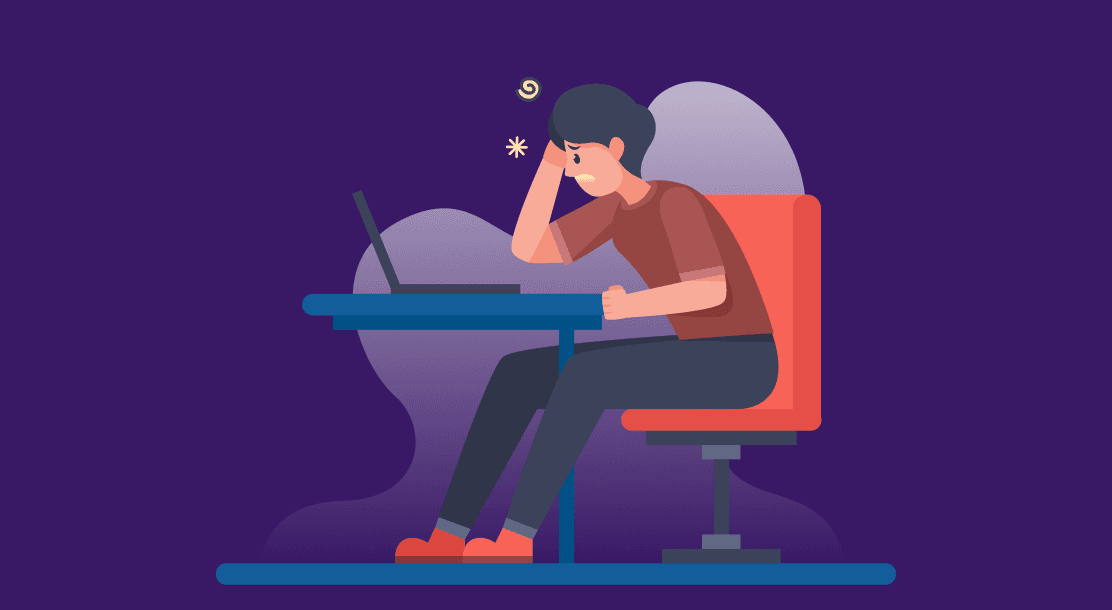
A mental block to creative thinking for any writer is when they cannot produce new ideas, work, or experiences in a creative slowdown. A block to creative thinking occurs when authors cannot develop new topics to write about. If left untreated, it can prevent you from writing for days, weeks, or even months.
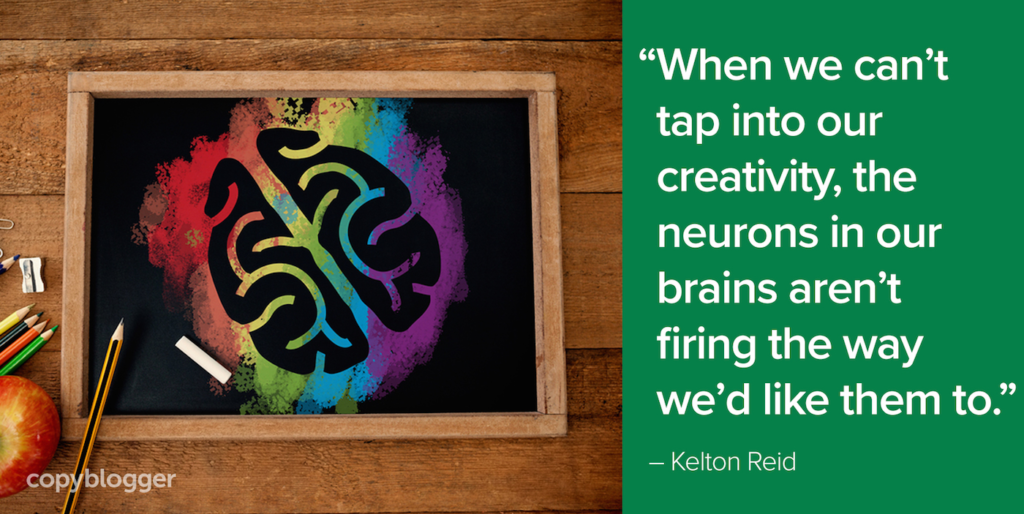
Many writers want everything they do to be perfect, which causes perfectionism. Many authors struggle with mental blocks to creative thinking. There are several approaches to overcome blocks to creative thinking.
This article will look at the reasons for the mental blocks to creative thinking and how to overcome them.
What is Creative Writing?
As the name implies, creative writing is a type of writing that deviates from the norms of conventional, commercial, scientific, or technology to show. It’s the “skill of making stuff up” or “putting a creative twist on history,” as in creative non-fiction.
Although the term might be a little hazy, creative writing is generally defined as any sort of writing that is unique and self-expressive.
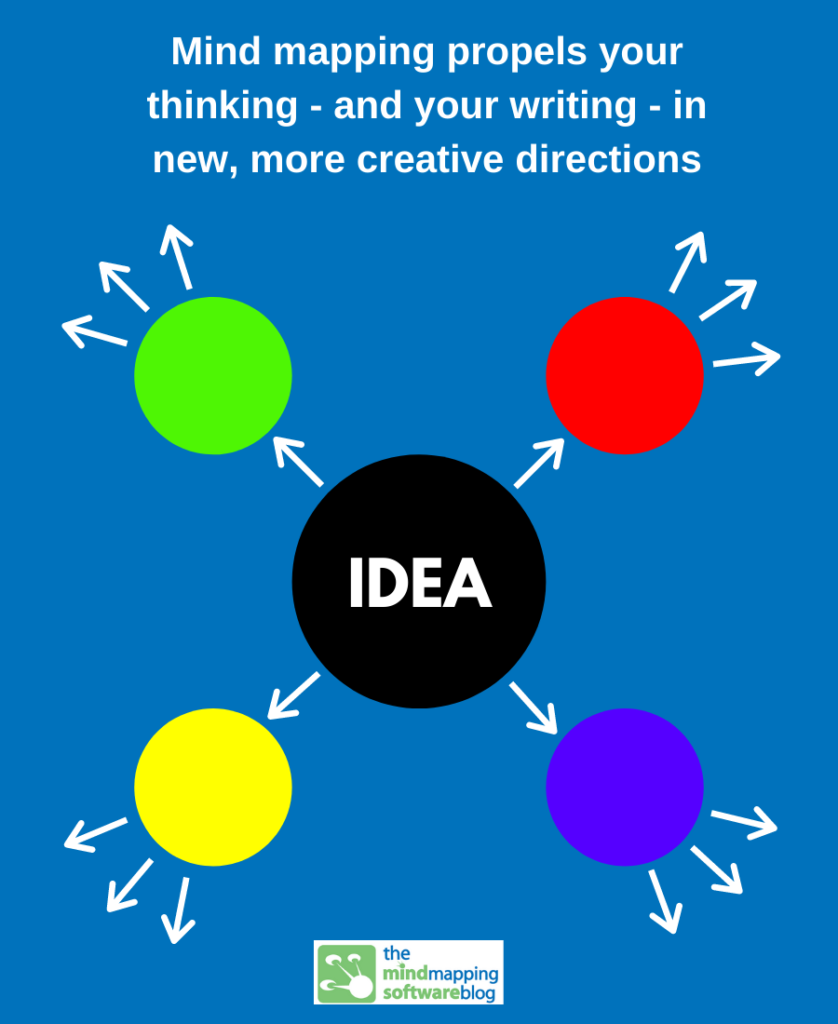
Instead, it comprises a variety of genres and forms seen in non-fiction book writing, including narrative, scriptwriting, poems, writing, journalism, and more.
Concentrating on narrative craft, focusing on character development, narrative, and plot, infusing its framework with creativity, innovation, and tale, is typically recognizable.

What is a Mental Block?
A mental block is the inability to remember or think of something you can normally do, often caused by emotional tension.
You may be feeling exhausted rather than motivated and excited about your article ideas. A mental barrier is a condition that prevents us from thinking. You can’t use your innate creative ability because of a mental impediment.
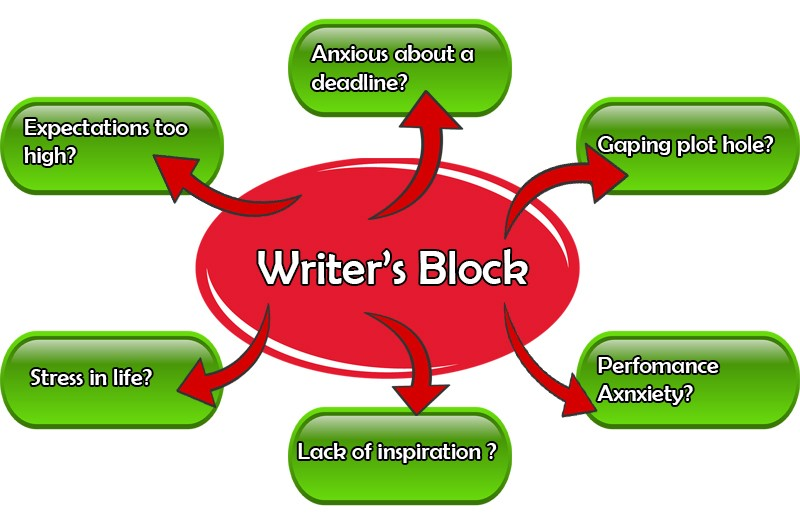
One fast way to recognize when you’re suffering from a mental block is to catch yourself second-guessing your actions. You’d be confident in your decisions and writing ability if you weren’t artistically inhibited. You’d be able to write articles quickly.
It makes it impossible for you to use your innate creative ability. You find yourself in an enigma: a lack of clarity, a loss of focus, and finally, a lack of motivation.
The inability to access one’s creativity is known as “creative blockages” or “hurdles to inspiration.” Writers, musicians, performers, and artists who work in creative fields are more prone to having creative blocks, which can linger for days, weeks, months, or even years.
10 Mental Blocks That Prevent Creative Writing and Tips to Overcome Them
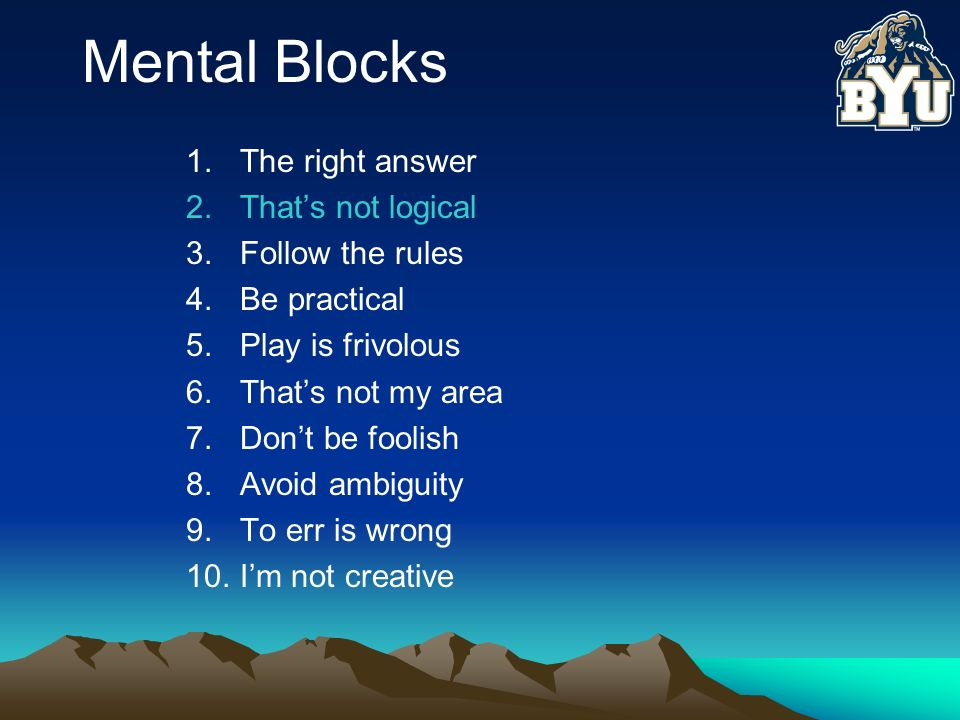
1. Making inferences
Making too many assumptions limits your ability to develop new and imaginative solutions to a problem or circumstance. Any conclusions based on factual data or not enough proof to back them up should be quickly dismissed.
2. Taking yourself too seriously
Fun, humor, and spontaneity are inextricably linked to creativity. Some individuals have the most bizarre ideas that make you wonder where they came up with them, and it’s not unusual for these ideas to elicit laughter or even replies offering even more bizarre ideas, creating a pleasant atmosphere.
Taking things too seriously doesn’t typically go well with being creative. To keep the right creative part of your brain lubricated, you need to have some fun.
3. If you believe there is just one answer, you’re mistaken
When confronted with an issue, typically, we think there is only one solution—fail to perceive any other possibilities, and refuse to consider them without thoroughly assessing them.
Flexibility and creativity go hand in hand; don’t get too attached to one concept, miss out on other possibilities; take the time to evaluate all other ideas objectively.
4. There is a communication breakdown
Creative barriers can occur between the ears as well as between individuals. When you work in a group, conflicts are unavoidable, and they may make it tough to produce your best job—especially if you work with one of the proverbial “difficult people.”
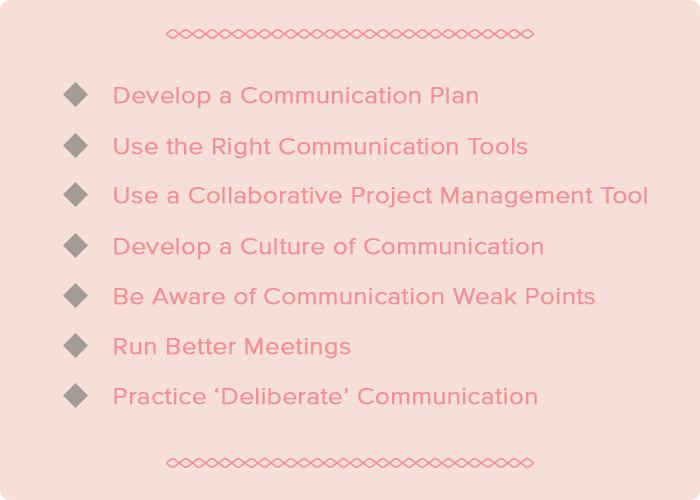
5. Failure of apprehension
Experience is the best teacher, and we can only learn by doing. When we try something new and fail, we want to save face. This is because we are constantly chastised or mocked when we fail or make a mistake.
It’s no surprise that humans strive for perfection and despise failure. You flunk a topic and are regarded as a failure. Even when we try our hardest yet fail, the world makes us regret our failure.
We are constantly reminded of our inability to do things correctly and made to feel defeated. The consequences are unavoidable. We avoid attempting anything because we are afraid of failing, and we lose our originality as a result.
6. Too ready to pass judgment
As previously said, if we assess ideas too fast and dismiss them as unsuitable because we didn’t spend enough time examining and considering each new concept, we risk missing out on a lot of possible innovative solutions to issues and creative ideas coming from ourselves or others.
7. The emotional chasm
Creativity can be exhilarating. It’s not pleasurable. When confronted with the unknown, you can fear what you’ll learn. Maybe your topic is complex, embarrassing, or plain strange. Whatever the case may be, these anxieties and apprehensions lead to procrastination.
8. It is essential to be practical.
By working as a professional writer, your new ideas may often get suffocated before they completely develop. It’s a good idea to let a plan stand on its own for a time before judging its true viability.
9. Being broke
We are not simply talking about money, but a shortage of funds is always an issue for artists. You may also be short on time, expertise, a brittle network, or the equipment or other resources you require to complete the task.
10. Maintaining your routines/habits at all times.
Staying safe in your routine, avoiding change, and being in your comfort zone are all enemies of creativity. We often get into the trap of being comfortable performing the same routine over and over again in our daily lives, such as taking the same road to work every day, since we’re used to it.
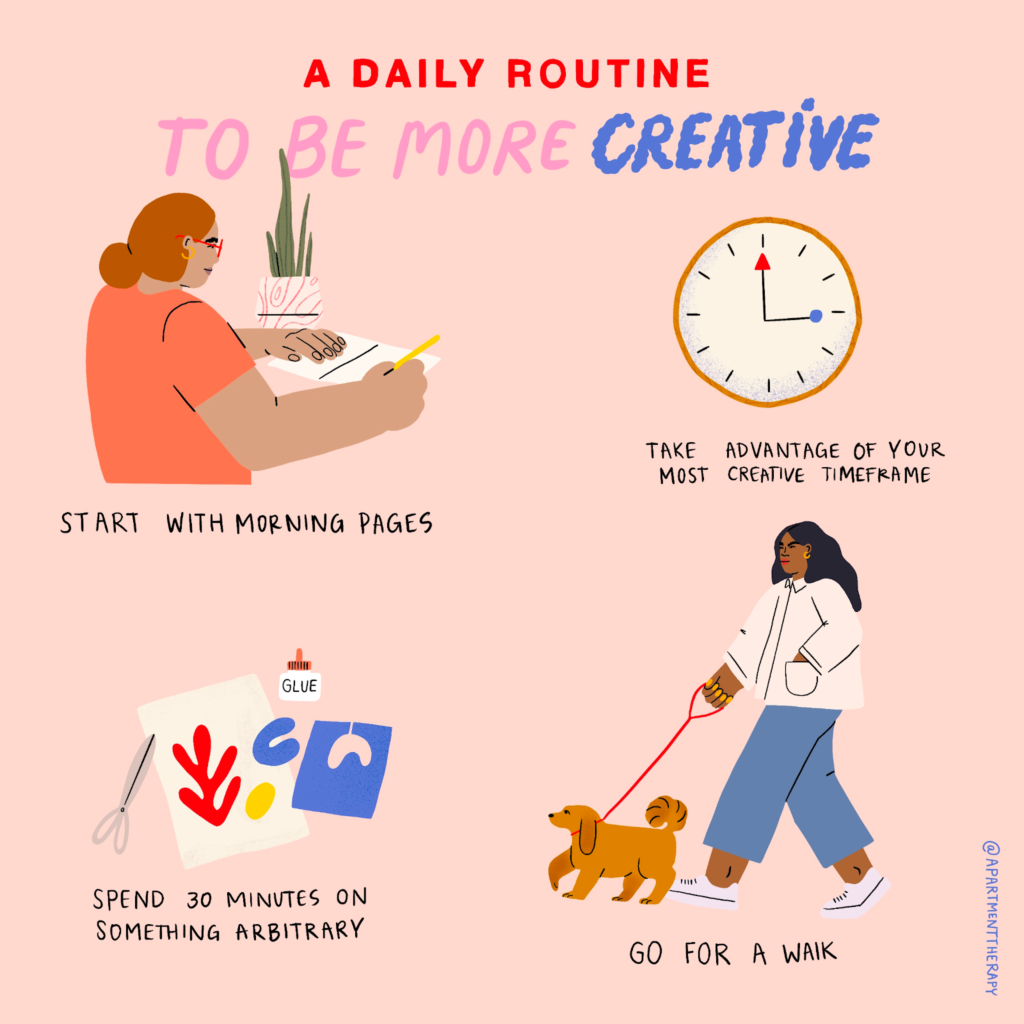
Change your routine, take a different route to work, and you’ll never know what you’ll see, meet, or hear that will jog your memory and get your creative juices flowing.
Tips to Overcome Mental Blocks That Prevent Creative Writing
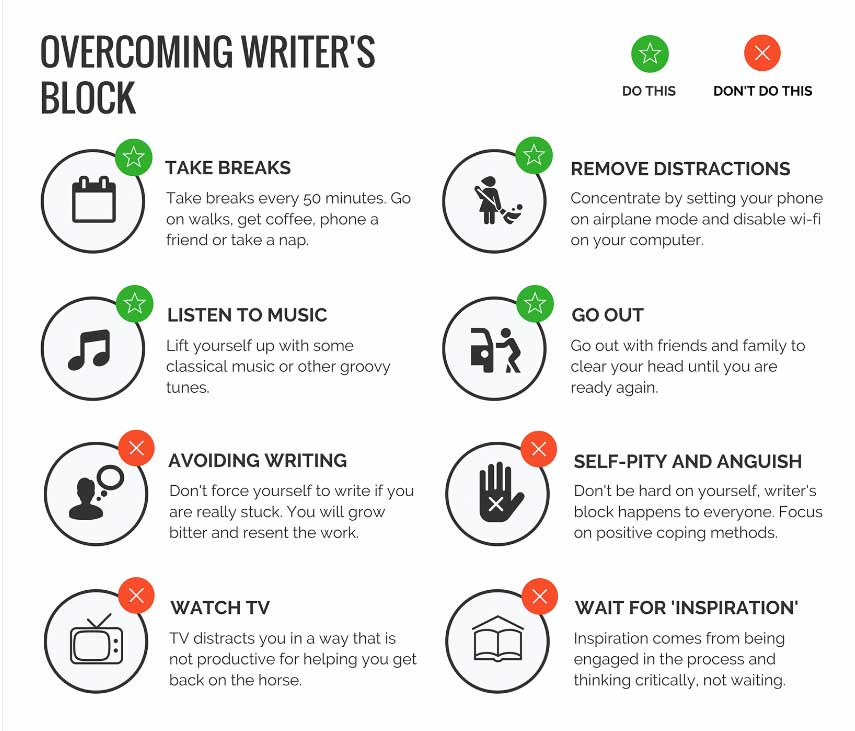
1. Set aside time and space to create
This may seem self-evident, yet many creative individuals lead hectic lives and find themselves frustrated by a lack of time to create. You’ll need to set aside some time and space to develop your creative abilities. You must be committed to it, just as you must be to exercise.
What if you don’t have access to a studio or office?
Try to work in a tiny part of the living room, kitchen, or bedroom. We know a talented artist who enjoys painting in the toilet! Years ago, we worked at a kitchen table.
2. Increase your movement
There’s a reason why it’s said that a healthy mind lives in a healthy body. Exercise forces you to integrate your mind and body, allowing you to be more present and conscious.
Exercise also induces the production of the neurotransmitters serotonin and dopamine, which provide feelings of happiness and well-being while also reducing fear and tension. Both are essential for increasing creativity.
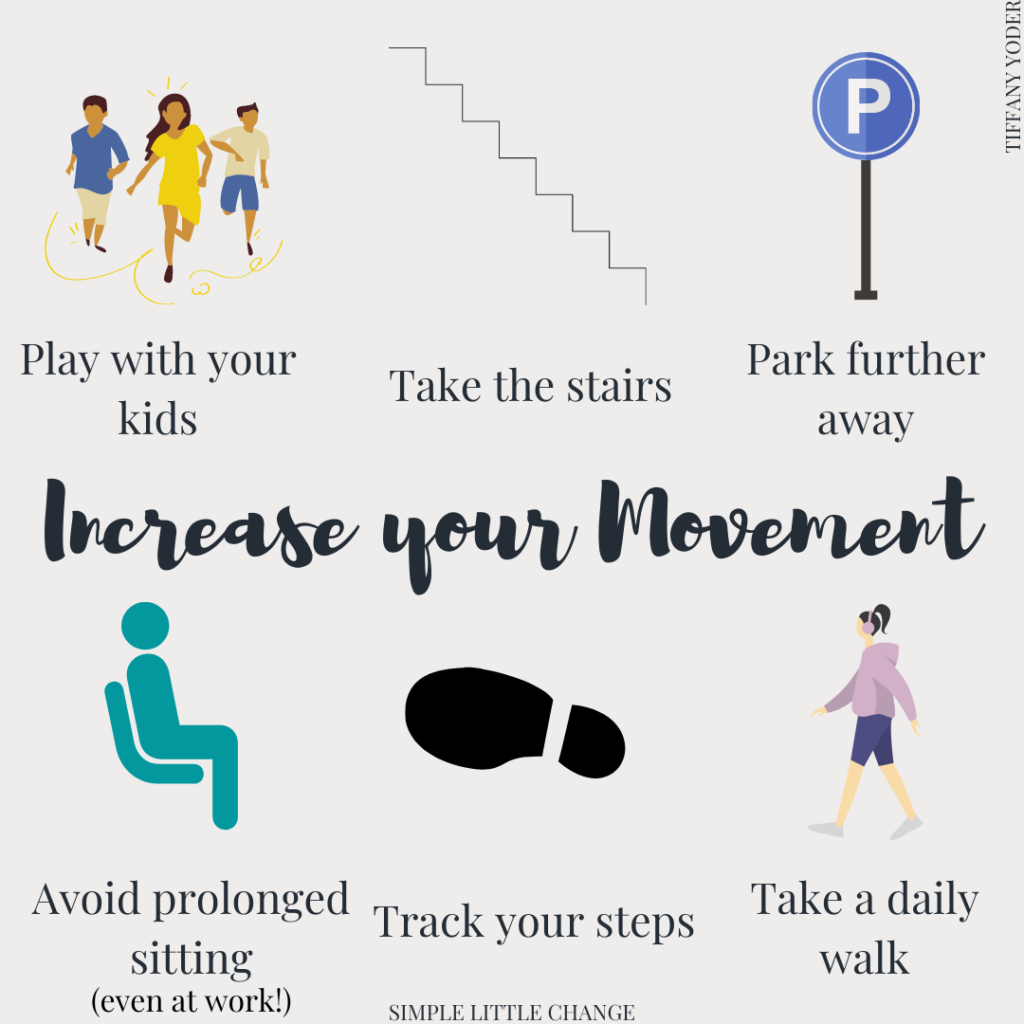
Make physical activity your daily habits, whether it’s a morning yoga session, laps in the pool, or lifting weights, practice workouts you love and are comfortable with.
3. Don’t be scared to step back.
Open briefs are the most likely to stifle creativity. Try to remove yourself from work; rest, and return with a fresh perspective.
4. Investigate alternative forms of creativity
Inspiration may strike at any time. Consider areas other than illustration and design, such as photography, typography, fashion, film, packaging, and signs.
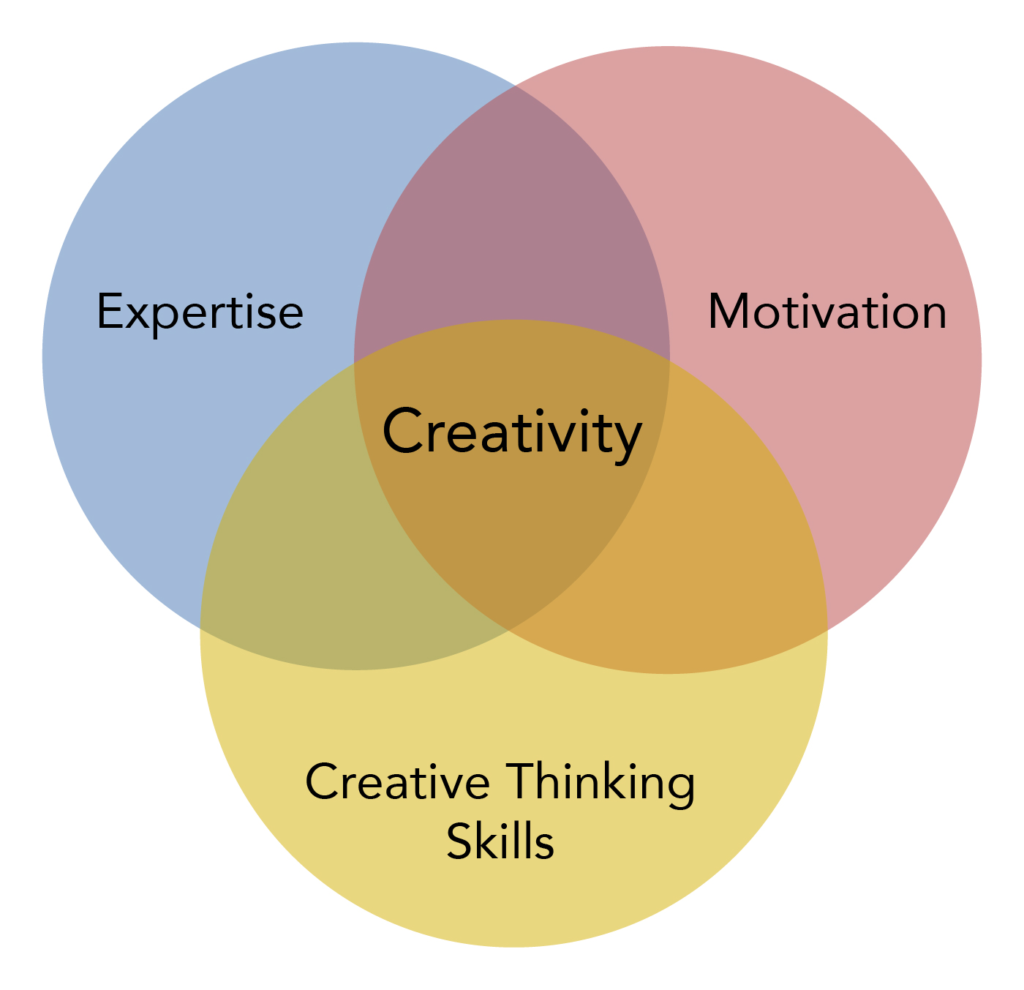
5. Oppose the current
Try to approach each brief in the opposite direction of what others might. It may not be the final path you choose, but it can help you avoid clichéd circumstances.
A variety of factors can cause mental blockages, but they are most common when you are emotionally invested in the result of a scenario.
Pressure to deliver and perform increases when we adopt specific tasks’ prejudices. When the stakes are high, we are more likely to freeze and become trapped.
These are some examples that are causing the mental block.
- Insufficient sleep
- Lack of vitamin B12
- Lack of physical activity
- Impostor syndrome refers to the belief that you cannot create material or ideas.
- The pursuit of perfection is frequently faulty, resulting in blockage.
- Procrastination causes worry and tension, as well as mental blockages.
- Clutter has an adverse effect on productivity and clarity.
Key Takeaways
- A situation in which an author cannot generate new ideas, work, or experiences can be described as a mental block to creative thinking. If left untreated, it can prohibit you from writing for days, weeks, or even months.
There are various ways and successful strategies for overcoming mental blocks to creative thinking.
- Creative writing deviates from the rules of conventional, commercial, scientific, or technological writing to demonstrate.
- Several things may produce mental blocks to creative thinking, but they’re most prevalent when you’re emotionally engaged in the outcome of a situation.
When we develop certain preconceptions toward work, the pressure to provide and perform intensifies. We are more inclined to freeze and become imprisoned when the stakes are high.
Don’t allow mental blocks to creative thinking to stop you from coming up with brilliant ideas. Try any of these simple approaches to understanding how to overcome mental blocks and remove the clutter in your head and get those creative juices flowing.
FAQs
Five frequent mental blocks prevent you from using creative thinking to solve problems.
1. Emotional barrier
2. Personal problems
3. Communication breakdown
4. Being a “serious” person
5. Being ambiguous
The inability to access one’s creativity can be a block to creative thinking or a hurdle to inspiration. Writers, musicians, performers, and artists who work in creative fields are more prone to having creative blocks, which can linger for days, weeks, months, or even years.
1. Tackle small tasks first
2. Setting aside time and space to create
3. Investigate alternative forms of creativity
4. Build a solid routine
5. Create a deadline
6. Listen to music
7. Be kind to yourself
8. Change your environment
9. Writing exercise
10. Read through blogs
When our cognitive processes entrap us, we experience mental obstacles. We may become overwhelmed or nervous about the outcome of a project to the point that we cannot make the effort necessary to accomplish it.
By definition, creative writing entails being “creative,” making stuff up, and letting your imagination run wild. Essays are about being impartial and realistic, presenting thoughts and ideas as directly as possible, and increasing the researcher’s knowledge rather than their imagination.
Latest Blogs
Explore how Google’s 2025 AI search updates triggered ranking chaos. Learn actionable strategies to adapt your SEO for AI Overviews, zero-click searches, and SERP volatility. Stay ahead now.
Learn how to rank on AI search engines like ChatGPT, Perplexity, and Gemini by optimizing your content for authority, structure, and relevance. Stay ahead in AI-driven search with this strategic guide.
Explore the best healthcare SEO services for your medical practice. Improve online visibility and effectively reach more patients in need of your services.
Get your hands on the latest news!
Similar Posts

B2C Marketing
5 mins read
Top Choices for Best Content Marketing Services in B2B Industries

Artificial Intelligence
5 mins read
How A Lead Generation Specialist Can Use AI-Powered Content Funnels to Drive Conversions

Artificial Intelligence
4 mins read